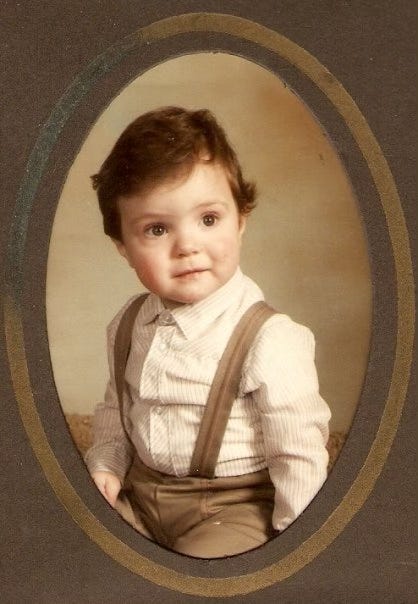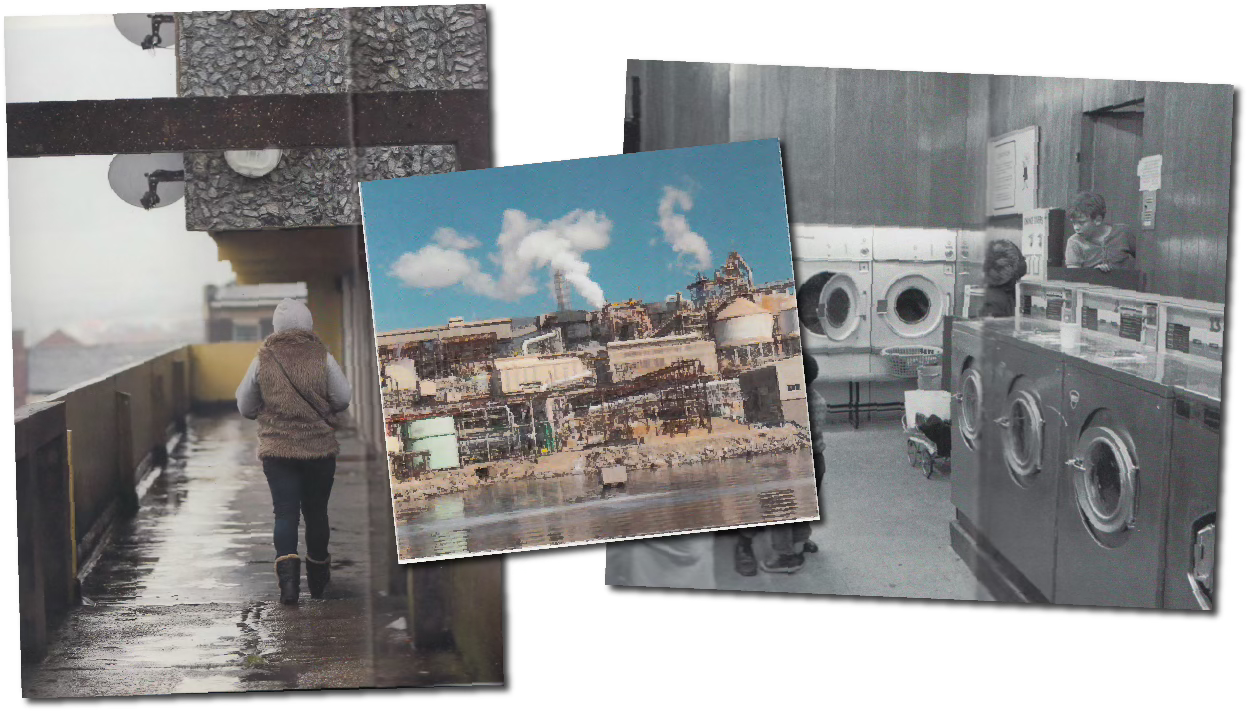Science's working-class 'other'
And why we need to hear more working-class voices in science and higher education
I’m embarrassed to admit it, but I have an intuitive mistrust of scientists. I feel uneasy around them. Don’t get me wrong, I’m an adult professional, complete with PhD and fancy job and know very well how ludicrous this sounds. But I can’t seem to shake it. You see, in my commonplace, working-class, fish-finger-butty kind of childhood, not only was a career in science unthinkable, but scientists represented an entirely other social class.
They were the people who decided whether my Mum was sick enough to claim her Disability Living Allowance. They were the ones who drew up the ‘deprivation maps’ blu-tacked to the wall of local council offices – those that coloured our housing estate a dark red, designating it a no-go area. Scientists looked after us when we were poorly, too, but paternalism doesn’t equal trust, does it?
What I’m trying to say is that, in my formative years, I had a clear sense of an ‘us’ and ‘them’. Scientists belonged to an infinitely more privileged social group that not only excluded, but seemed to have contempt for the likes of me.
I now write about the history of science and medicine for a living, which helps me move past those shameful feelings every day. The professional in me knows that residual doubts can be safely ignored – I’ll take your Covid vaccine, thank you very much, and cheerfully participate in your clinical trial. But the professional in me also knows that people from backgrounds like mine aren’t well represented in the scientific community, so can’t exactly be blamed for our suspicions.
Being British, I tend to see the inaccessibility of a scientific career as a feature of the class system. In reality, as a series of articles in Nature has argued, it’s an international issue. From Brazil to Japan, the USA to India, a career in science is beyond the reach of poorer people. It’s even true in China, where the government has done arguably more than any other to make science affordable to the masses.
We all know that, from the board room to the court room, it’s harder to feel you have a stake in society if you’re part of an under-represented group. So, a few years ago, finding myself quite alone amongst lovely-but-posh colleagues, I decided to come out as working class. My chance came when the Times Higher Education Supplement commissioned me to write an article for a feature called ‘breaking through the class ceiling’.
I wrote about how lucky I felt to be a historian and how important it was for working-class people to be represented in front of the lecture hall (the ‘working class’ is, by the way, 49% of Brits and 47% of Americans). I was upbeat, cheerful, and genuinely grateful. But I wish I hadn’t written the damned thing because it changed how people saw me. They stopped referring to me as a ‘historian’, and I became a workingclasshistorian – all one word. They stopped using my title (though I never insisted on that in the first place). Maybe I was being oversensitive, but I got the impression that people who knew my background couldn’t accept I had anything to do with a top-tier university, or any university.
This point was hammered home by the Times Higher’s picture editor, who ornamented the feature with their idea of what poor people do. At the bottom of one page was a photo of some heavy industry, represented by a tangle of pipes and a chimney. In the corner of another page, a black-and-white photo of a fed-up housewife using a laundrette. And, on a double spread, a woman was tottering around a brutalist tower block in the drizzle. The only cliche they missed was a bloke on a ladder in hi-vis jacket and helmet – an image they must have been holding back because they used it in a later article describing how being working class is bad for your career. I’ve never lived in a tower block, nor do I use laundrettes or work in heavy industry. But, to people who aren’t working class, this is entirely appropriate – it’s who they think we are. All of a sudden, I felt again as I did in childhood: excluded. They’ll never see me as one of them.
Imagine my surprise when I learned that social scientists observe and study this kind of thing. They call it ‘constructing the Other’. And they’ve done proper, peer-reviewed scientific studies about how social elites cultivate myths about poor people. Alison Phipps, Professor of Languages and Intercultural Studies at Glasgow, put her finger on it: ‘The unruly, uncivilised, violent working-class Other’, she wrote, ‘is a repository for the qualities the middle classes fear and … reject’. It’s a known phenomenon: An ‘us’ and ‘them’ really have been observed in the scientific literature. I now have a word to describe why I struggled to trust scientists when I grew up, and why the Times Higher populated my article with caricatures of working classness: I was being ‘othered’.
The tragedy is that ‘othering’ results in ‘us’ being treated differently by ‘they’ who populate the professions. It’s why, according to researchers working in this area, women from lower socio-economic groups are less likely to be believed when they report being raped. It’s why young boys from deprived areas are assumed also to be violent, drunk drug seekers. It’s why prison sentences tend to be heavier for impoverished criminals. And I think it’s also why working-class people in middle-class professions, like science, are lumped into their own special category, kept at arm’s length. We are represented, but as everything well brought-up people fear and despise: laundrette-using, violent, volatile, feckless, stupid, compliant, unreliable underlings and benefit claimants. You wouldn’t want your kids taught by someone like that.
My own feelings of mistrust have receded with the years. But they’re still there, like a spectre, at the back of my mind. Easy to ignore. But the unbridged distance between working-class people and scientists is harder to ignore, especially these days. It comes to mind particularly when I hear my colleagues talk about trust, and the importance of fostering it – something that’s been prominent on the agenda for a couple of decades and in sharp focus for the last few years. Better communication, and gender and racial diversity is often seen as the solution. And that’s undeniably part of the answer, but as encouraging as I find the diversification of science, I still don’t see people like me (though that doesn’t mean we’re not there – I spent years hiding my background and I know others who still aren’t ‘out’ as working class).
Why isn’t poverty and social class a more prominent part of the conversation? It’s hard to encourage people to trust you if they don’t appear in your ranks. The task effectively becomes impossible if you ‘other’ them. We need, then, to encourage more working-class voices from different cultures and backgrounds – low-caste from India, those excluded from science in rural Japan, the working-class people populating the housing projects and council estates of North America and Europe. And we must try to understand how science came to be a subject reserved for our social elites.





Paul, writing about your experience and that of the community in which you spent your childhood, and I guess some of your teens, is quietly effective.
Avoiding the didactic, and academic theorisations allow the reader to feel how deeply science negatively imprints on those it is used to label and micromanage, as less than in a strongly classed based society.
I wonder (if it’s not an intrusion to ask) to what extent the humour and wit you bring to your writing on the history of science is motivated (deliberately or not) by your remaining distrust of science?
Meredith